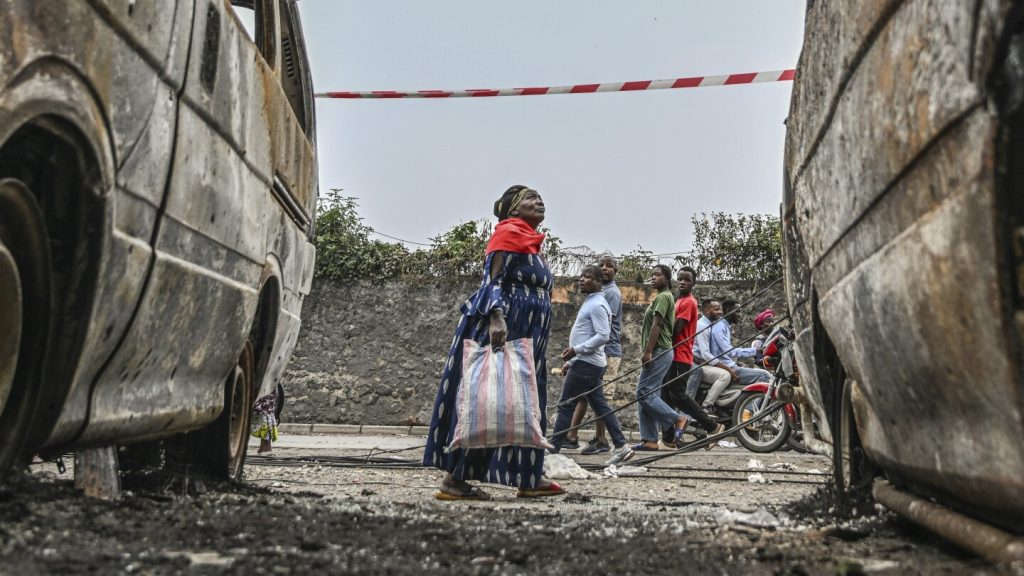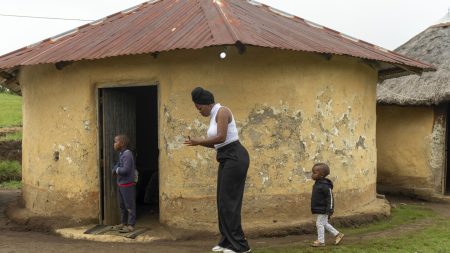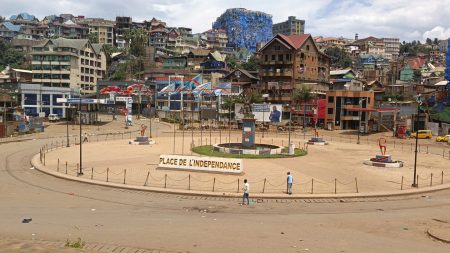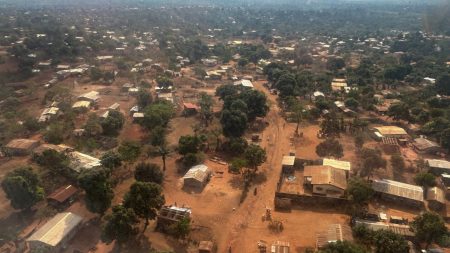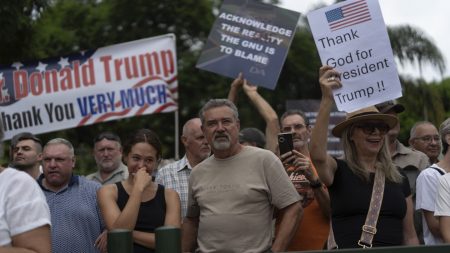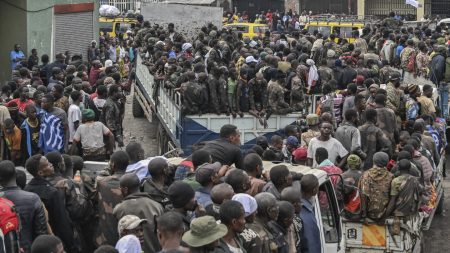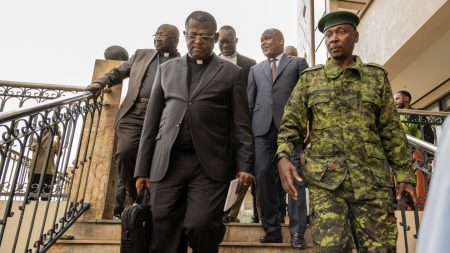Trial of Congolese Soldiers Accused of War Crimes Begins Amid Ongoing Conflict
Introduction to the Trial and Accusations
In the eastern region of the Democratic Republic of Congo, a significant legal proceeding commenced in the city of Bukavu, South Kivu province. The trial involves 84 Congolese soldiers accused of severe human rights violations, including murder, rape, and other violent crimes against civilians. These atrocities allegedly occurred in several villages within the territories of Kabare and Kalehe. The soldiers are accused of breaking into civilian homes over the weekend, raping multiple women, and killing at least 12 people, according to Pascal Mupenda, a lawyer representing the victims. Mupenda emphasized the gravity of the situation, stating that the soldiers turned their weapons against the very people they were entrusted to protect. He also mentioned that additional soldiers accused of similar crimes would face trial in the coming days, indicating that this may be the beginning of a series of legal actions aimed at addressing the widespread violence in the region.
The trial is being held in a military court in Bukavu, where the civil party has requested the death penalty for all the accused soldiers. This demand comes shortly after Congo lifted a 20-year moratorium on the death penalty in March, a decision that has been met with criticism from human rights activists. The last execution in the country took place in 2003, and the reintroduction of capital punishment has sparked concerns about the country’s commitment to human rights and the rule of law.
Victims’ Testimonies and Calls for Justice
Among the victims of the soldiers’ violence is Zawadi Chapo Ombeni, a resident of Kavumu, who shared his harrowing experience with The Associated Press. Ombeni recounted how he was beaten and robbed by soldiers as he prepared to flee his village due to the advancing rebels. “We were robbed by military personnel known by the state, that are serving the state,” Ombeni said over the phone. He expressed a sense of betrayal and injustice, stating that the soldiers who were supposed to protect civilians instead turned against them. Ombeni and other victims are now calling on the state to provide compensation for their losses, as everything they owned was taken by the soldiers.
The testimonies of victims like Ombeni highlight the devastating impact of the conflict on civilians, who are frequently caught in the crossfire between armed groups and government forces. The victims’ stories also underscore the need for accountability and justice, as many have lost loved ones, livelihoods, and sense of security. The trial of the 84 soldiers is seen as a crucial step toward addressing these grievances and potentially deterring future abuses by military personnel.
The Resumption of the Death Penalty and Its Implications
The civil party’s demand for the death penalty in this case has reignited the debate over capital punishment in Congo. The country had maintained a moratorium on executions for over 20 years, but the decision to lift it in March has been controversial. Human rights activists have criticized the move, arguing that the death penalty is a violation of fundamental human rights and that it does not serve as an effective deterrent to crime.
Moreover, the resumption of the death penalty raises concerns about the fairness and transparency of Congo’s justice system. In a country where corruption and impunity are widespread, there are fears that the death penalty could be applied disproportionately or without due process. The case of the 84 soldiers will be closely watched to see how the courts handle capital punishment and whether the proceedings meet international standards of justice.
The Role of M23 Rebels and the Broader Conflict
The trial of the Congolese soldiers takes place against the backdrop of escalating violence in eastern Congo, where Rwanda-backed M23 rebels have been making significant gains in recent weeks. The rebels have captured key areas, including the city of Goma in North Kivu province, and have been advancing in South Kivu. Since late January, the conflict has resulted in the deaths of at least 3,000 people and injured nearly as many. The rebels’ advances have displaced hundreds of thousands of civilians, who are now in dire need of humanitarian aid.
The M23 rebels declared a unilateral ceasefire last week, claiming it was to facilitate the delivery of humanitarian aid. However, the Congolese government dismissed the announcement as a “false communication,” suggesting that the rebels’ intentions may not be genuine. The rebels’ actions have been widely condemned, and their support from neighboring Rwanda has further complicated the situation. According to U.N. experts, the M23 rebels are backed by approximately 4,000 troops from Rwanda, making them the most potent of the more than 100 armed groups operating in eastern Congo.
International Response and the Quest for Accountability
The United Nations Human Rights Council has launched a commission to investigate the atrocities committed by both the Congolese army and the M23 rebels in eastern Congo since the beginning of the year. The commission will look into reports of rapes, summary executions, and other human rights abuses, with the aim of holding perpetrators accountable. The international community has expressed growing concern over the escalating violence and the humanitarian crisis in the region.
The involvement of the United Nations highlights the need for a coordinated international response to address the root causes of the conflict and to protect civilians from further harm. However, the complexity of the situation, including the involvement of foreign actors like Rwanda, presents significant challenges to achieving peace and stability in the region. The trial of the Congolese soldiers is an important step toward accountability, but it must be part of a broader effort to address the systemic issues driving the conflict.
Conclusion and the Path Forward
The trial of the 84 Congolese soldiers accused of war crimes is a critical moment in the ongoing struggle for justice and accountability in eastern Congo. The violence against civilians, including the killing of at least 12 people and the rape of several women, represents a tragic failure of the state to protect its citizens. The victims’ testimonies, such as that of Zawadi Chapo Ombeni, serve as a stark reminder of the human cost of the conflict and the urgent need for action to prevent further abuses.
As the trial proceeds, it will be important to ensure that the proceedings are fair, transparent, and in line with international legal standards. The resumption of the death penalty raises concerns that must be addressed through careful consideration and debate. At the same time, the broader context of the conflict, including the role of M23 rebels and the involvement of neighboring countries, must be taken into account to achieve a lasting resolution.
The international community, including organizations like the United Nations, has a crucial role to play in supporting efforts to bring about peace, justice, and stability to eastern Congo. The launch of the U.N. commission to investigate atrocities is a positive step, but it must be followed by concrete actions to protect civilians and hold perpetrators accountable. Only through a combination of legal accountability, international cooperation, and efforts to address the root causes of the conflict can the people of eastern Congo hope to rebuild their lives and look toward a future free from violence and fear.





